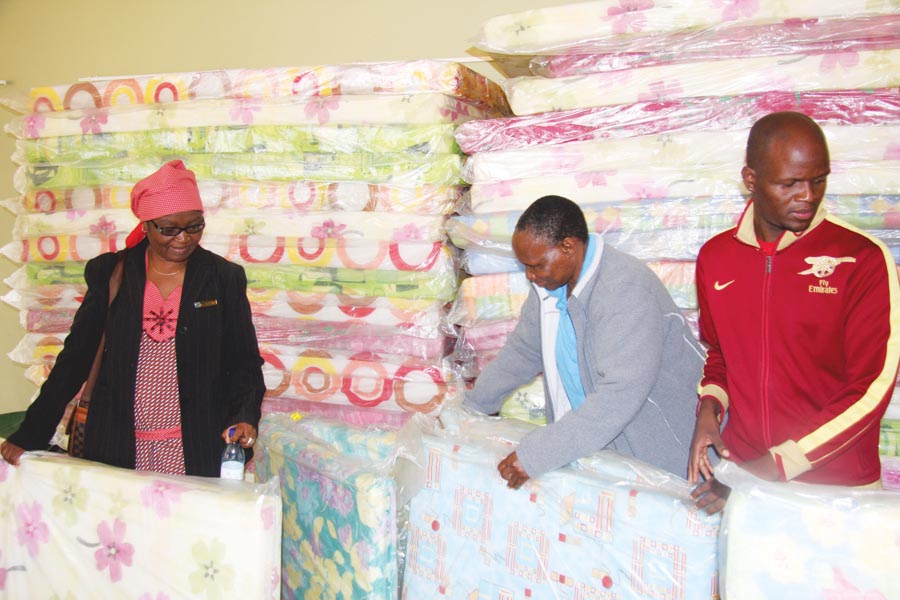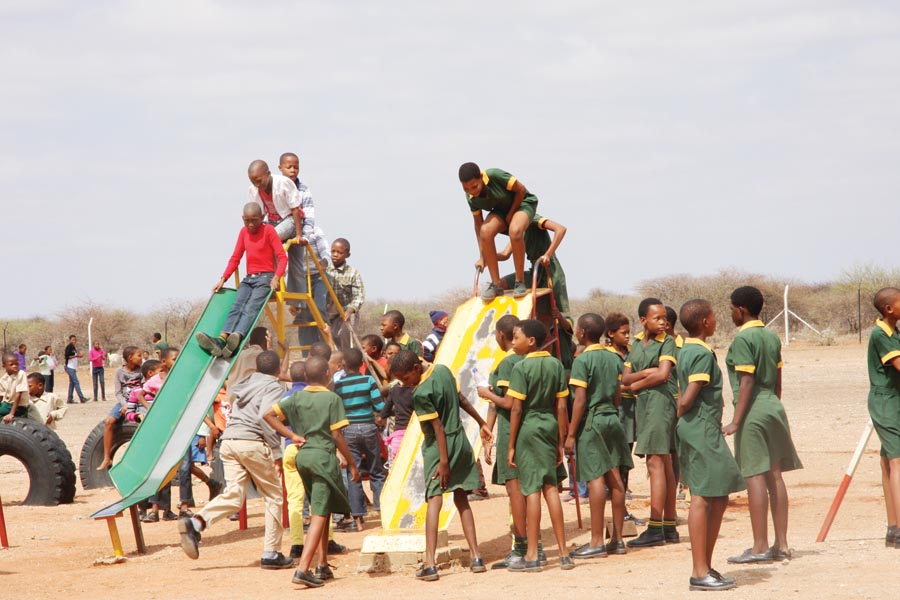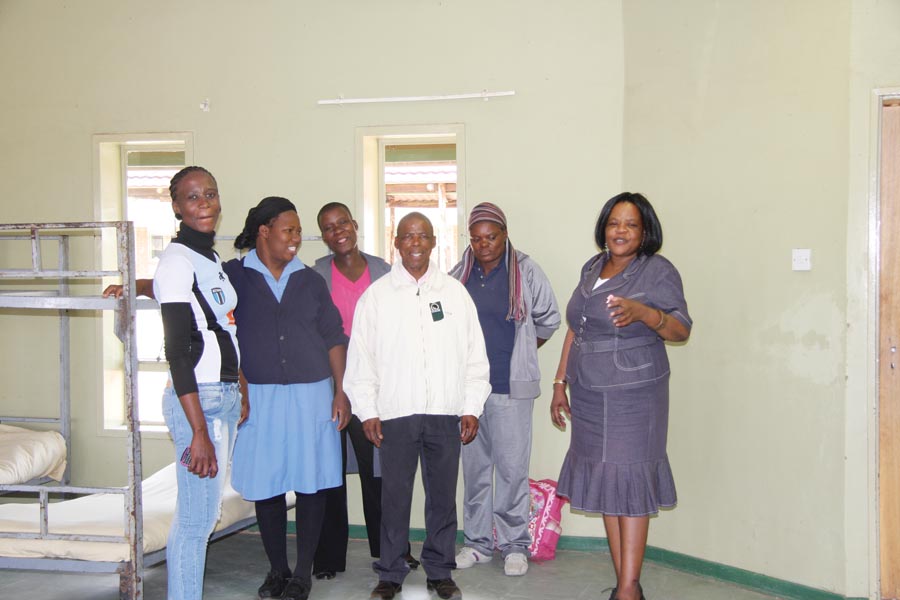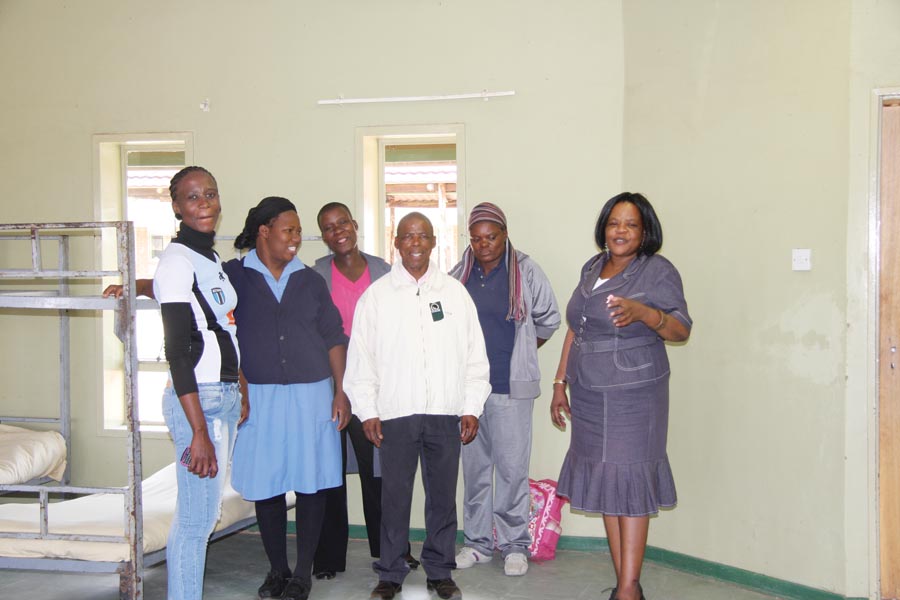Giving them a future
Source : BOPA
Author : Ndingililo Gaoswediwe
Location : Mahalapye
Event : Interview
The rusty-red face brick houses with green roofs stand in neat rows in the compound.
Little girls in green uniforms with yellow sleeves and collars happily play around the compound, beautifully blending into the colours of the houses.
If you are standing where I am you will know by now that you are looking at Setlhomo RemoteArea Dwellers’ Settlement (RADs) hostels.
The village on whose soil you are treading is called Otse and lies – as the crowflies - 100 kilometers west of Mahalapye.
The school within whose compound the hostels have been built is called Setlhomo Memorial Primary School.
Here you will find children as young as six-years old.
The school has 645 pupils, 235 ofwhom are accommodated at the hostels.
The majority of those living in the hostels come from farms and settlements far away from Otse.
These include Amaoo which is 120km away, Zodibao, Dubaduba, Debegootshaa, Daujenaa all of which are atleast 200km away. There is also Gambee and Selelosangwana, which are too far for children to walk daily to and from school in Otse.
So the children are accommodated at the hostels.
It is not easy bringing up nearly 240 children from various backgrounds.
It takes the combined energies of four caretakers,four cooks, two night watchmen, the matron and her assistant plus the teachers to contain and guide the swelling, curious and often naughty energy of the children.
Somehow, the group of adults has managed to beautifully ball all the children’s energy into one huge responsible community.
The children’s minders know they must give it their all, especially considering the fact that for many of the children, the only opportunity to be shaped into responsible citizens is while they are at school.
And the adults taking care of them have expended their best energies to ensure this happens.
And the children are so disciplined that their school and hostels remain among very few, if not the only ones, that have not been vandalised in the country.
“Mo Setlhomo ga re lebe dithuto hela, r eaga bana ba ka gore ba tswa mo mafelong a a farologaneng mme e bile go sena thotloetso kw amalwapeng ya gore bana ba e tsoge e le batho ba ba nang le boleng mo sechabeng,” explains deputy school head, Margaret Keitumetse.
A major challenge though, that Keitumetse and her colleagues have to grapple with on a daily basis is that of language.
Many of the children come from Sesarwa speaking homes, and communication between them and the staff can be quite a chore.
“Communication ke hmmm! hela ka gore ga ba tlhaloganye,” says Keitumetse.
She believes that introducing pre-standard one classes, where the children would be taught Setswana could help.
Keitumetse says she is still trying to understand parents’ failure to take part in the education of their children.
They never even attend Parent and Teachers Association meetings, she says.
The laid back attitude of the parents might explain the social well-being of the children when they come to school forthe first time, reasons Sebeo Mosarwa, a devoted caretaker who has been working at the facility for 16 years.
When the children arrive for the first time they are so devoid of expected manners and behaviour such as properly responding to elders.
For Mosarwa, working here is more of a sacrifice than an attempt to get a salary.
Anybody who works here because he or she wants a salary will find the job testing, and will surely not have the patience to deal with the children, she reasons.
Mosarwa is the hostel Eve, and typical of the motherthat she is, she bathes the younger children,washes their clothes, nurtures and moulds them.
Part of the nurturing, which she doeswith her colleagues, includes introducing the children to household tasks such as sweeping, doing laundry and cleaning the yard.
At this stage, the children are also taught to bathe themselves, make up their beds and how to properly handle food.
It breaks Mosarwa’s heart to see pupils drop out of school, which is very common among the RADs children, not because she and her colleagues would not have spent time developing them but because many of the children would revert to the previous life or do worse.
Sadly parents are not bothered in the least and will not make time to help solve the problem, she says.
However, through her dedication, she has been able to persuade many of the children to come to school.
She is also worried that children here engage in sexual activities too early, another challenge she has to address as a mother.
Of the seven dormitories, only six are in use.
Hostel matron, Bogabedi Gontswe,says 100 boys occupy two dormitories while 135 girls occupy four.
A major problem that Gontswe and her many children have to contend with is shortage of mattresses, television and radio sets, clothing for the children, soaps and detergents.
Some portions of the hostels need renovation, which she hopes will include fitting wall wardrobes in the hostels.
Currently the children keep their clothesin bags and cardboxes.
Many times a week, she wishes there was reliable transport for the school.
At such times she would be carrying a littleboy or girl on her back, and walking to the local clinic, or to the bus stop where she would board a bus to take the child to Lephephe clinic.
It is a 24-hour, very rewarding job, she says.
The reward is seeing the many little happy faces, that are so because she had direct input in making their little hearts happy.
The children love it here and talk about the beautiful care they receive from the hostel mothers and all the staff at the school.
“Go botoka thata go na le kwa lwapeng ka gore teng nne ke sa ithute sepe, tiro yame e le go tshameka fela mme kwano ke ithutile go bala le go kwala, ditiro tsa mo lwapeng le jone botho tota,” [Staying here is better than at home asI now can study and not just play as it wasthe case. Here I learnt to read and write and proper behaviour] says 14-year-old Balebile Kukama who would have just finished writing her standard seven examination when you read this story.
She wants to become a nurse one day.
Her story is the story of the other 239 children at the hostels, who one day will become responsible members of the society thanks to the RADs programme, and the commitment of great citizens such as Margaret Keitumetse, Sebeo Mosarwa and Bogabedi Gontswe.
Teaser:
The children minders know they must give their all, especially considering the fact that for many of the children, the opportunity to be shaped into responsible adults is while they are still at school.
















